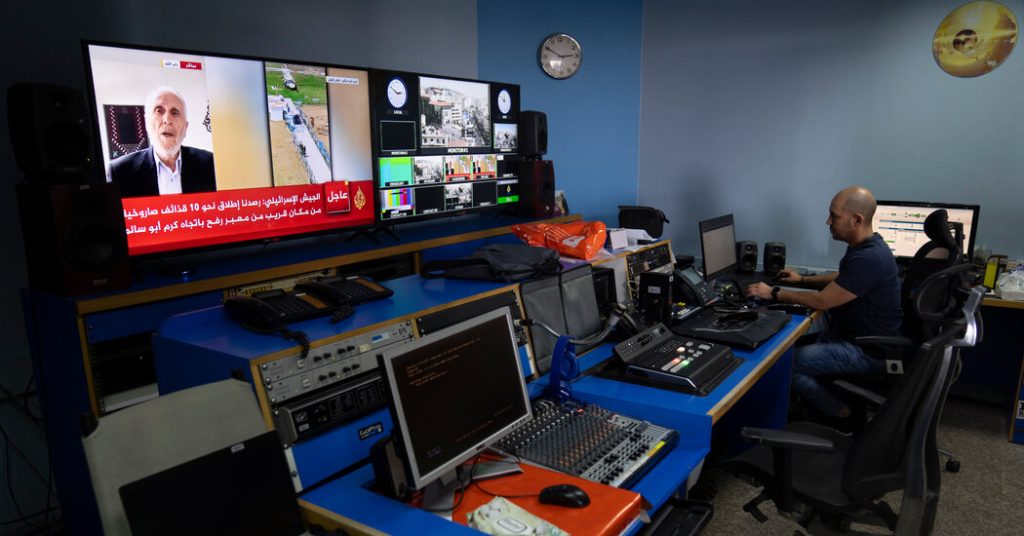Israel recently ordered Al Jazeera to shut down operations in the country, leading to journalists being forced to leave their reporting positions and broadcast equipment being confiscated. This move marks a significant deterioration in the network’s already strained relationship with Israel. The shutdown order, which lasts 45 days and can be extended, is seen as a culmination of a long-standing conflict between the two entities. Al Jazeera has been accused of presenting a one-sided view of the conflict, with a focus on the suffering of Palestinians in Gaza, creating controversy and criticism from some Arab analysts.
The network has been instrumental in covering stories from Gaza, providing in-depth coverage of the devastating effects of the conflict on the local population. The emotional and intense reporting from Al Jazeera has heightened global outrage at Israel’s actions. With its comprehensive network of journalists and correspondents on the ground, Al Jazeera has been able to capture the realities and struggles faced by Palestinians in Gaza. The closure of its operations in Israel has raised concerns about the suppression of information and control of the narrative by the Israeli government.
Critics of Al Jazeera argue that the network’s coverage tends to favor Hamas and supports armed resistance against Israel, with limited critical analysis of the group’s actions. Support for Hamas and its claims has been bolstered by the emotional reporting and on-air commentary by Al Jazeera, particularly on its Arabic-language channel. The network has been accused of giving Hamas a platform to promote its agenda without adequate scrutiny. Israel’s decision to shut down Al Jazeera’s operations has been met with condemnation from rights advocates and organizations advocating for press freedom.
Despite the ban on Al Jazeera’s operations in Israel, the network has vowed to continue broadcasting from Gaza and the West Bank. The closure of its offices in Israel has led to concerns about the suppression of information and attempts to control the narrative about the conflict. Al Jazeera’s coverage of the conflict in Gaza has been crucial in providing a voice to the Palestinian population, especially in light of limited access and coverage by other international news outlets. The network’s reporting has helped shed light on the humanitarian crisis in Gaza and the impact of ongoing hostilities.
Al Jazeera’s reporting has been instrumental in highlighting the plight of Palestinians in Gaza and garnering support for their cause on the global stage. The network has faced criticism for its alleged bias towards Hamas and presenting a one-sided view of the conflict. The closure of its operations in Israel has been seen as an attempt to stifle voices critical of Israeli actions and control the narrative surrounding the conflict. Al Jazeera’s substantial presence in Gaza and its extensive network of journalists have enabled it to offer unique insights into the situation on the ground, despite facing challenges and restrictions.
The closure of Al Jazeera’s operations in Israel has sparked debates about press freedom, journalistic ethics, and the role of media in conflicts. The network’s reputation for emotional and intense reporting from conflict zones has drawn both praise and criticism, with concerns raised about its coverage of Hamas and its impact on public perceptions of the conflict. The ban on Al Jazeera has been seen as a symbolic move by Israel to silence critical voices and limit access to information about the conflict. As the network continues to report from Gaza and the West Bank, the debate over media coverage of the Israeli-Palestinian conflict is likely to persist.


